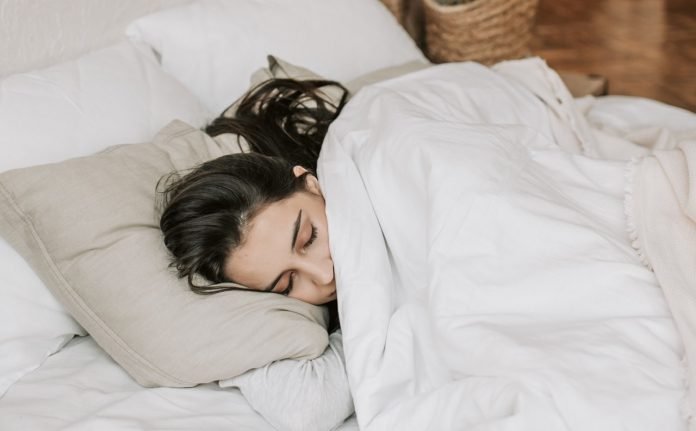
Scientists from the University of Bristol found that people who have difficulty getting to sleep or staying asleep had higher blood sugar levels than people who rarely had sleep issues.
The findings suggest insomnia could increase people’s risk of type 2 diabetes, and that lifestyle or pharmacological treatments that improve insomnia could help to prevent or treat the condition.
The research is published in Diabetes Care and was conducted by James Liu et al.
Insomnia, not getting enough sleep, and having a later bedtime, have been linked in previous studies to a greater risk of type 2 diabetes.
In this study, the research team assessed whether these associations are explained by the causal effects of sleep traits on blood sugar levels.
They examined how five sleep measures—insomnia, sleep duration, daytime sleepiness, napping and morning or evening preference (chronotype)—were related to average blood sugar levels assessed by a measure called HbA1c levels.
The study of over 336,999 adults living in the UK, showed that people who reported that they often had difficulty getting to sleep or staying asleep had higher blood sugar levels than people who said they never, rarely, or only sometimes had these difficulties.
The research team found no clear evidence for the effect of other sleep traits on blood sugar levels.
The findings could improve researchers understanding of how sleep disturbance influences type 2 diabetes risk.
The study also suggests that lifestyle and/or pharmacological interventions that improve insomnia might help to prevent or treat diabetes.
The team estimated that an effective insomnia treatment could result in more glucose-lowering than an equivalent intervention, which reduces body weight by 14kg in a person of average height.
Currently, there are some treatments for insomnia.
For example, UK guidelines to doctors recommend cognitive behavioral therapy (CBT) for insomnia, and short-term treatment of sleeping tablets or treatment with a hormone called melatonin if CBT does not work.
Sign up for our newsletter for more information about this topic.
If you care about insomnia, please read studies about drug that could help treat insomnia, sleep loss, and how to deal with “COVID-somnia” and sleep well at night.
For more information about diabetes, please see recent studies about the best fruit for people with diabetes, and results showing 5 dangerous signs you have diabetes-related eye disease.
Copyright © 2022 Knowridge Science Report. All rights reserved.



